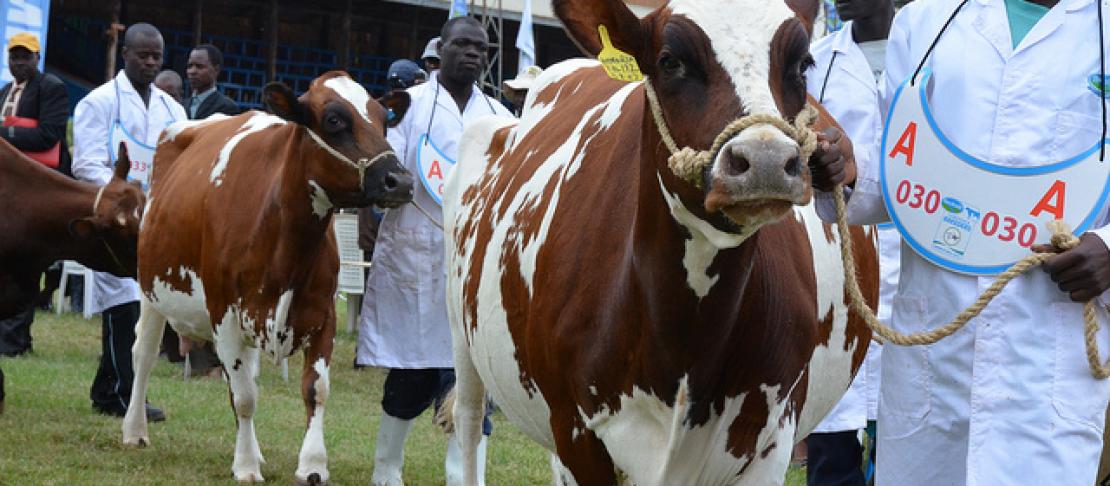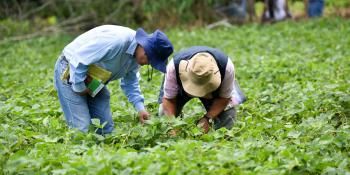Dairy partners in Kenya meet to discuss increased productivity, reduced emissions

Kenya's State Department of Livestock has revised livestock, veterinary and dairy policies and created a dairy master plan and implementation strategy to increase dairy productivity - and reduce emissions.
The government of Kenya is working with partners to develop a dairy Nationally Appropriate Mitigation Action (NAMA). The dairy NAMA aims to transform Kenya’s dairy sector to a low-emission development pathway, while improving the livelihoods of 227,000 dairy producing households across the country, writes Susan Onyango in her recent blog post on the World Agroforestry Centre (ICRAF) blog. She adds that it is anticipated that productivity improvements will yield an additional 6.6 billion litres of milk per annum, reaching over 30 million consumers.
All these efforts are geared towards ensuring increased productivity from the dairy sector, and one of the greatest challenges that will hinder achievement of this will be climate change effects. This therefore calls for the design and implementation of climate-smart policies and strategies,” said Dr. Andrew Tuimur, Principal Secretary for Livestock, at the meeting.
Read the original blog post on the ICRAF blog: Stakeholders move to enhance productivity and efficiency in Kenya’s dairy sector for lower greenhouse gas emissions
Kenya’s dairy NAMA is being developed with support from CCAFS, UNIQUE Forestry and Land Use, the World Agroforestry Centre (ICRAF) and the Food and Agriculture Organization of the United Nations (FAO).
Further readings
- van Dijk S, Tennigkeit, T, Wilkes A. 2015. Climate-smart livestock sector development: the state of play in NAMA development. CCAFS Working Paper No. 105. Copenhagen, Denamrk: CGIAR Research Program on Climate Change, Agriculture and Food Security (CCAFS).
- Blog: Reducing emissions from Kenya's dairy sector
- Blog: Kenya Integrates Climate-Smart Agriculture into its Intended Nationally Determined Contribution
- Project: Nationally Appropriate Mitigation Actions in Kenya’s dairy sector
Julianna White is a program manager for CCAFS Low emissions agriculture flagship.



